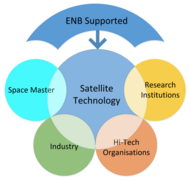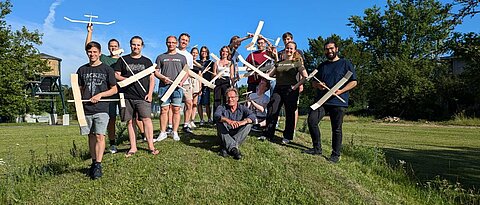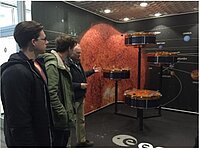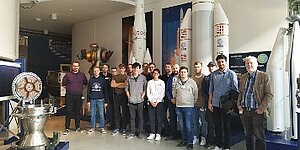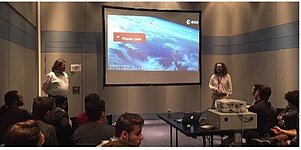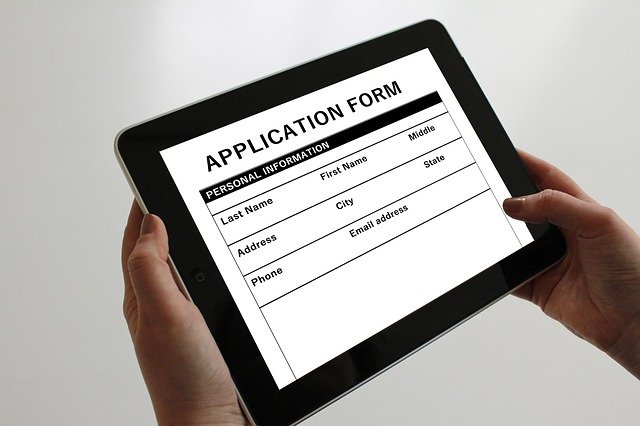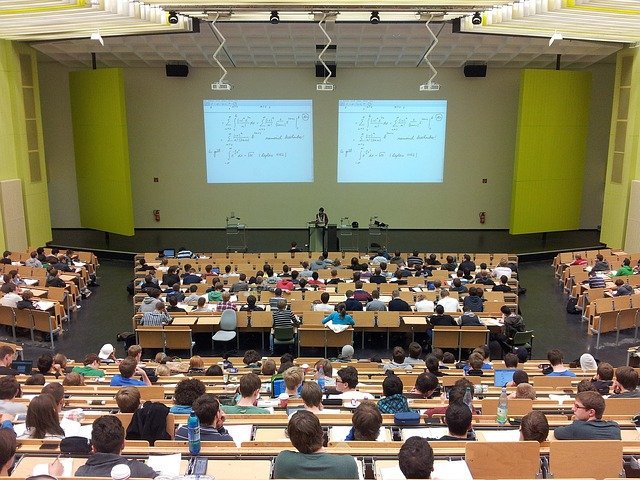Welcome to the home of small satellites in Germany. Our Masters in Satellite Technology course brings over 20 years of experience in building satellites and over 15 years of educating students about space technologies together into one of the most exciting master courses in this high tech and interdisciplinary field today. SaTec focusses on Satellite-System-Design and Technology and brings geography, mathematics, communications, mechanical engineering and material science together into one competitive program. Synergies with existing courses and partners (we partner with almost all space institutions in Bavaria and have integrated guest lectures into our courses to provide first hands on experience to our students!) are extensively built in to our learning modules.
This partner network also enables us to organise meetings, lectures and excursions to institutions currently working on space missions. This also helps our students get in touch with leading researchers to explore opportunities for research work at our partner institutions.
Satellite Technology - Advanced Space Systems
This is the information portal of our international master program in Satellite Technology (taught in English) at the University of Würzburg. This master program called "Satellite Technology - Advanced Space Systems" was selected as one of the few elite courses by the "Elite network of Bavaria", a Bavarian government initiative to attract the best science talents to Bavarian universities in Germany.
Contact Us
Mon - Fri 9:00 - 18:00 Uhr
Coordinator: Mrs. Heidi Frankenberger,
Phone: 0931 31 86678
Latest photo impressions from SaTec
The space ecosystem in Würzburg
Due to the special adversities of the working environment, the application field of space travel has particularly high needs and requirements for telematics technologies.The University of Wuerzburg operates its own small satellites called the "University of Würzburg Experimental Satellites" and named "UWE -X". Swarms of small satellites open up the potential for a paradigm shift from large, expensive satellites to swarms of distributed, low-cost standard satellites, so that a much faster and more flexible realization of satellite missions becomes possible. Many of the methods and techniques developed for space travel can also be transferred to industry.
The space ecosystem in Würzburg also includes the Zentrum für Telematik e.V. and it's spin-off “ S4 -Smart Small Satellite Systems GmbH” which both contribute technologies and implementations in this booming market, thus offering students opportunites for both Hands-On training during their studies and careers after finishing this Master Program.
UWE - 1
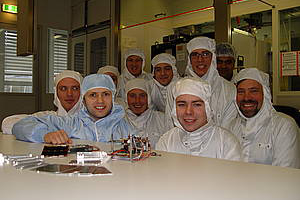
UWE-1 (Universität Würzburg Experimental-Satellit 1) was launched on 27th October 2005 from Platesk in Russia. After 2 hours, the first signals were received from the satellite in orbit. As the first German Pico Satellite, the UWE-1 has been inducted in to the Deutsche Museum!
UWE - 2
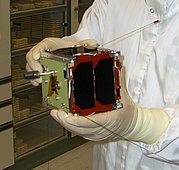
Further development of the UWE series brought about UWE-2 with one of the main objectives being to test a new attitude control system. UWE-2 was launched in 2008 from Sriharikota in India.
UWE - 3
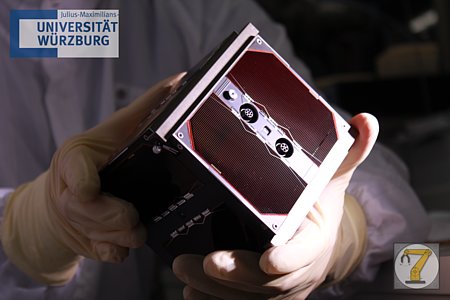
UWE-3 was launched with a Dnepr Launch Vehicle from Yasny Launch Base on Nov. 21 2013. This satellite, thanks to it new redundancy concepts, is one of the longest working pico satellites in the world!
UWE - 4
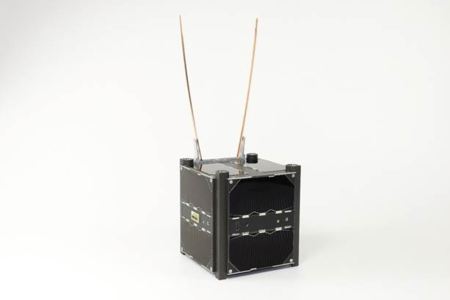
This 1U (one unit) CubeSat incorporated for the first time a propulsion system. The satellite was launched on board a Soyuz-2 mission using a Fregat upper stage in December 2018.


